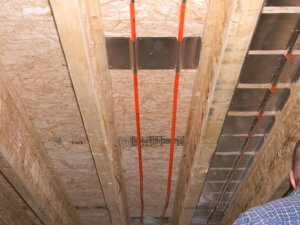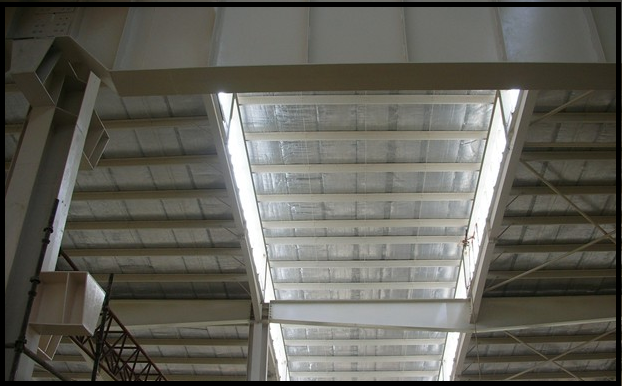Using Aluminum Sheeting For Radiant Heat

Thermofin u extruded aluminum heat transfer plates on sub floor use the shorter length hardwood flooring nails to avoid puncturing radiant floor heating installations when installing wood flooring.
Using aluminum sheeting for radiant heat. If the floor covering will be soft carpet or vinyl for example then a thin layer of wood called luan should be installed. Radiant barriers consist of a highly reflective material usually aluminum foil which is applied to one or both sides of a number of substrate materials such as kraft paper plastic films cardboard oriented strand board and air infiltration barrier material. Radiant energy transferred through standard roof sheathing creates heat build up in the attic. Using a radiant barrier as a house wrap is rapidly gaining popularity and yes you can add atticfoil to the exterior of your home building to maximize comfort by reflecting radiant heat on all sides.
These are commercially available fins that are made for use in radiant floor heating. The extruded heat transfer plates will transfer heat a little better due to the mass of the extruded plates and the pex tubing will be held in place better and thus will be quieter than stamped plates. Other kinds of radiant barriers combine reflective materials usually aluminium foil with materials like plastic films cardboard and kraft paper. Wood floor installers should use nails that will not penetrate the bottom of the sub floor.
Using atticfoil on sun catching walls is an excellent way to make the home more comfortable efficient in summer. With no barrier to restrict the heat it radiates through the insulation into living spaces causing room temperatures to rise. The graphic below is a guide for nail lengths. More energy is needed to cool the house and that means higher energy costs for homeowners.
They are aluminum sheet usually 5 or 6 inches wide typically made from 0 018 inch thick aluminum and have a formed groove that fits over the pex floor loops in radiant heating systems. Both plates quicken the response times for the floor and distribute the heat evenly across the floor. The most effective radiant barrier sheathing is a structural roof sheathing panel which consists of an osb panel with heat reflecting foil laminated to one side. Some products are fiber reinforced to increase durability and ease of handling.
From my research it seems clear that we should install aluminum heat transfer plates but i haven t been able to determine whether it s worth investing in the extruded aluminum c shaped heat transfer plates over the sheet metal omega or u shaped. Now the tubing can be installed and the finished flooring put in. Aluminum reflective barrier 19 00 380 00 paper backed reinforced foil material that is typically used in joisted floor applications to reflect the radiant waves upward towards the subfloor. The heat transfer plate on the right is a stamped aluminum plate where the plate is positioned over the pex and stapled up.
















































